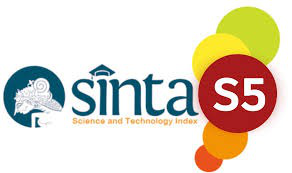Education Revolution: Leveraging Technology to Improve Learning Quality by 2025
Abstract
Keywords
Full Text:
PDFReferences
Akram, H., Abdelrady, A. H., Al-Adwan, A. S., & Ramzan, M. (2022). Teachers’ perceptions of technology integration in teaching-learning practices: A systematic review. Frontiers in psychology, 13, 920317.
Almusaed, A., Almssad, A., Yitmen, I., & Homod, R. Z. (2023). Enhancing student engagement: Harnessing “AIED”’s power in hybrid education—A review analysis. Education Sciences, 13(7), 632.
Anderson, T., & Rivera Vargas, P. (2020). A critical look at educational technology from a distance education perspective. Digital Education Review, 2020, num. 37, p. 208-229.
Chen, L., Chen, P., & Lin, Z. (2020). Artificial intelligence in education: A review. Ieee Access, 8, 75264-75278.
Chen, Z., Zhang, J., Jiang, X., Hu, Z., Han, X., Xu, M., ... & Vivekananda, G. N. (2020). Education 4.0 using artificial intelligence for students performance analysis. Inteligencia Artificial, 23(66), 124-137.
Clarke, M. (2020). Talkin’‘bout a revolution: the social, political, and fantasmatic logics of education policy. In Freud, Lacan, Zizek and Education (pp. 125-143). Routledge.
Ferri, F., Grifoni, P., & Guzzo, T. (2020). Online learning and emergency remote teaching: Opportunities and challenges in emergency situations. Societies, 10(4), 86.
Haleem, A., Javaid, M., Qadri, M. A., & Suman, R. (2022). Understanding the role of digital technologies in education: A review. Sustainable operations and computers, 3, 275-285.
Jones, K. M., Asher, A., Goben, A., Perry, M. R., Salo, D., Briney, K. A., & Robertshaw, M. B. (2020). “We're being tracked at all times”: Student perspectives of their privacy in relation to learning analytics in higher education. Journal of the Association for Information Science and Technology, 71(9), 1044-1059.
Kamalov, F., Santandreu Calonge, D., & Gurrib, I. (2023). New era of artificial intelligence in education: Towards a sustainable multifaceted revolution. Sustainability, 15(16), 12451.
Kasowaki, L., & Huma, Z. (2023). Digital Education Revolution: Navigating the Challenges of AI Integration in Developing Nations (No. 11436). EasyChair.
Latova, N. V., & Latov, Y. V. (2020). Late for the third educational revolution (Сomparative analysis of human capital of Russian professional specialists). Journal of Institutional Studies, 12(2), 67-85.
Putra, P., Mizani, H., Basir, A., Muflihin, A., & Aslan, A. (2020). The Relevancy on Education Release Revolution 4.0 in Islamic Basic Education Perspective in Indonesia (An Analysis Study of Paulo Freire’s Thought). Test Engineering & Management, 83, 10256-10263.
Torda, A. (2020). How COVID‐19 has pushed us into a medical education revolution. Internal medicine journal, 50(9), 1150-1153.
Visscher, A. J. (2021). On the value of data-based decision making in education: The evidence from six intervention studies. Studies in educational evaluation, 69, 100899.
Wilcox, G., Fernandez Conde, C., & Kowbel, A. (2021). Using evidence-based practice and data-based decision making in inclusive education. Education Sciences, 11(3), 129.
DOI: https://doi.org/10.46336/ijeer.v5i1.867
Refbacks
- There are currently no refbacks.
Copyright (c) 2025 Moch Panji Agung Saputra, Nurnisaa binti Abdullah Suhaimi, Alim Jaizul Wahid
Published By:
IJEER: Jalan Riung Ampuh No. 3, Riung Bandung, Kota Bandung 40295, Jawa Barat, Indonesia
IJEER Indexed By:
 This work is licensed under a Creative Commons Attribution 4.0 International License.
This work is licensed under a Creative Commons Attribution 4.0 International License.









